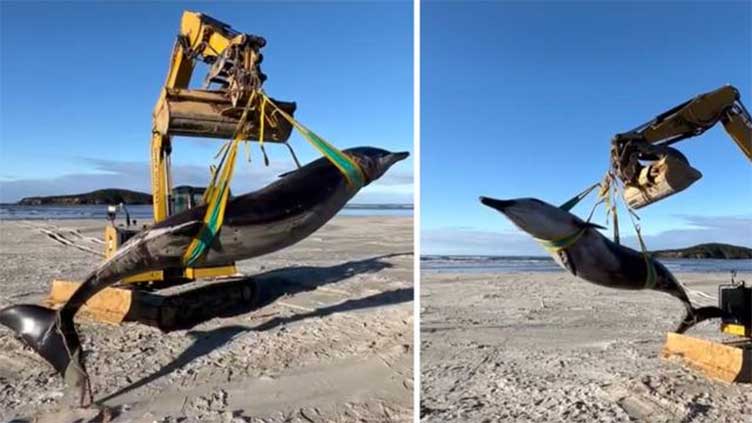World's rarest whale surfaces in New Zealand

WeirdNews
Experts know little about the whale
(Web Desk) - A male spade-toothed whale was washed ashore in a small fishing village at the mouth of the Taieri River, New Zealand, the Department of Conservation Te Papa Atawhai reported.
The beaked whale is 16 feet (five meters) long and is one of the world’s rarest. Sighting such a mammal was massive for the Department of Conservation as only six specimens are known to the scientific community.
Experts know little about the whale. When the whale was examined, marine-mammal experts from DOC and Te Papa noted that the whale was a male spade-toothed whale.
RARE LARGE MAMMAL SPOTTED
“Spade-toothed whales are one of the most poorly known large mammalian species of modern times,” DOC Coastal Otago Operations Manager Gabe Davies said.
“Since the 1800s, only six samples have ever been documented worldwide, and all but one of these was from New Zealand.
From a scientific and conservation point of view, this is huge,” Davies added.
When it was discovered at the site in Otago, the whale was already deceased. DOC has partnered with Te Rūnanga ō Ōtākou, a tribal community, to assess the whale’s remains and decide on preservation methods.
Davies, alluding to the creature’s rarity, stated in the official statement that conversations about what to do next will take more time because it is a conversation of international importance.
Referring to the discovery of the whales, Hannah Hendriks, marine technical adviser for the Department of Conservation, said, “We know very little, practically nothing.”
“This is going to lead to some amazing science and world-first information.”
If the cetacean is indefinitely determined to be the rare spade-toothed whale, it would be the first of its kind to be discovered in a state allowing the scientists to dissect it possibly, the Associated Press reported.
This would shed light on the relationship between this whale and other species discovered. Scientists could gain knowledge of the whale’s eating habits and find clues about their habitat.


